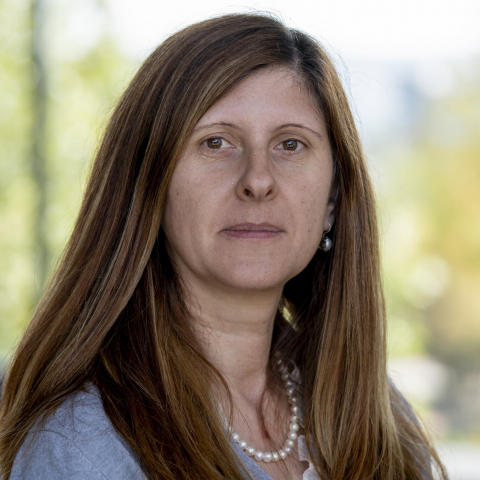Submissions are currently closed. Spring/Fall 2024 cycles will open contingent on funding availability.
Out-of-cycle proposals are accepted for initial feedback and potential review, but no funding commitments can be made at this time. Please reach out by email if you have any questions.
Breakthroughs in science happen when exceptional scientists have the freedom and resources to partner across disciplines. The Benkovic Family Foundation is pleased to announce a call for projects to seed and nurture excellence, discovery, and knowledge creation to enable transformative research at the interface of chemistry and life sciences. This initiative will be administered by the Department of Chemistry in the Eberly College of Science and Penn State’s Huck Institutes of the Life Sciences.
Proposals can be in any area of fundamental and applied chemistry with the potential to advance innovations in the life sciences. We are looking to support fundamental lab-based discoveries, computational and theoretical advances, curiosity-driven research, exploratory research, and translation. Example areas are given in the addendum. Projects must be too innovative or too risky to attract conventional funding at this point. High impact entrepreneurial projects too rudimentary to attract industry or venture support are also welcomed.
Proposals must have potential for rapid and high impact at the broad intersection of chemistry and the life sciences. We will invest in exceptionally talented individuals and teams, support them with access to unique and unrivaled facilities, and empower them to take risks in research concepts and make bold forays in new directions. Support might include, but is not limited to, the following: resources to facilitate individuals working across disciplines, including salary support for post-docs, research faculty and key technicians, instrumentation; resources for experimentation, including seed funding, and resources to establish new collaborations including centers. We do not expect to support students or tenured/tenure-track faculty salaries. Funding will be contingent on progress towards the milestones and the Science Advisory Board (listed below) can withdraw its support at any point if no progress towards the milestones is being observed.
Applications are open to all faculty at Penn State. Team proposals are welcome. In Year 1, the intention is to commit up to $1M across 2-4 projects, although exceptions could be made for truly outstanding proposals. Projects are expected to run for 1-3 years in the first instance. We hope to make this an annual call.
The submission process is multi-staged. Projects should be first discussed informally with at least one member of the Science Advisory Board at least two weeks before submission deadlines. Those informal discussions must be initiated with a 1-3 paragraph project summary. After feedback, which may involve several rounds, PIs may be invited to submit a concept paper as described below. PIs/Teams subsequently shortlisted will be invited to present their ideas to the SAB.
For more information, please contact Camelia Kantor, the Huck Institutes' Associate Director of Strategic Initiatives.
Camelia Kantor
Associate Director of Strategic Initiatives; Associate Research Professor
Awards are contingent on funding.
REQUIREMENTS:
Invited concept papers should be no more than three (3) pages of jargon-free text written for a broad academic/industry audience. Interested applicants should send the following documents in sequence in one PDF file (Last name_Benkovic2022) no later than 11:59 p.m. on November 15, 2022:
1. 100-word executive summary
2. Background. If you are successful, what difference will it make? Who cares?
3. Your idea and approach. How is this new? Why do you think it will work?
4. Risks. Why does your idea defy conventional funding mechanisms?
5. Rapid Success. How will your idea generate a step change on these project timelines?
6. Sustainability. If your idea works, how will it be supported going forward?
7. The project team, role of investigators and evidence of prior innovation by team members. Why you?
8. A brief budget with timeline (do not include faculty salaries or support for students).
Additional to the three pages, an appendix for any references cited.
COMMON REASONS APPLICATIONS LIKE THIS ARE UNSUCCESSFUL:
There is no description of what success would look like.
Projects are insufficiently impactful.
Projects are simple or logical extensions of existing research and so fundable elsewhere.
Projects are shovel ready for conventional funders. Reviewer comments explicitly rejecting a proposal because of risk is strong evidence that you’re ahead of conventional funders. In biomedicine, the NIH R21 mechanism explicitly exists to help PIs generate pilot data and does not itself require pilot data. This call is not intended to be a local substitute for an R21.
Example areas which could be supported under this call include but are not limited to:
- infectious diseases, for instance virus replication and mechanism
- biochemistry
- immunology
- medicinal chemistry, including nanoparticles
- enzymology
- neuroscience
- plant science
- materials science
- chemical engineering
- proteomics
- metabolomics
- intracellular chemistry
- cell-cell signaling
- structural biology
- DNA Biology
Submit your proposal on Infoready
